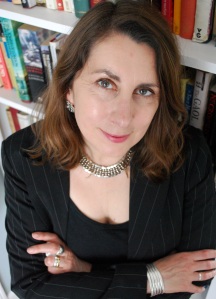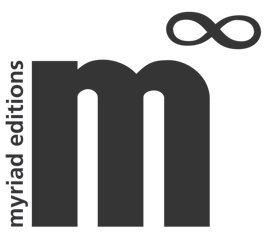A Sense of Place _ Sally O’Reilly on how she writes Historical Fiction
There are many elements in a historical narrative, but one of the most important is setting. If your reader is going to trust you story, and trust you as a story teller, you have to make them ‘see’ the period and the way that people lived.
One of the reasons that I set my first two novels in the present/recent past is that I like to write about what I can see. A sense of place is important to me, both because it gives the story context and depth, and also because it can be used to illustrate or dramatize the themes that drive the narrative. When I switched to writing historical fiction and set out to write a novel set in the late sixteenth and early seventeenth century, this seemed like a huge challenge. My historical novel ‘Dark Aemilia’ tells the story of the relationship between two real historical characters: William Shakespeare and Aemilia Lanyer, the first woman to be published as a professional poet in England. How do you build a credible reality when you are writing about a world that has disappeared, and that you will never know?
The first step – and one that may seem daunting – is research. There is no getting away from this, and if you can’t stand the idea of reading (quite a few) history books or spending time in old buildings or library archives, then this genre of fiction may not be for you. I was surprised to find that I loved it, and that historical research can be addictive. I found that until I know what people would wear, what sort of chairs they would sit on, how, where and what they ate (and so on) I couldn’t see the scene myself. Another surprise was that research and concrete facts are inspiring in themselves, and many elements of my story – such as the belief in the occult and the spirit world that dominates the thinking of my main character – came from reading heavy tomes such as ‘Religion and the Decline of Magic’ by Keith Thomas.
Historical fiction is a diverse and vibrant genre, and you can spin it any way you want. Your story may be set 50 years or go, or 500, and you can tell a page turning yarn, or write in an impressionistic and experimental way. You can retell familiar stories, dramatize the lives of people forgotten by time, delve into your family’s past or invent an alternative historical world.
Whatever approach you take, and whatever your ambition for your own story, I would emphasise the importance of being precise and specific in building up your ideas. Plot and characterisation are essential elements of story, and in my workshop I will be looking at ways of developing these using research, imagination and observation.
Research helps you unearth new knowledge that enables you to enter your chosen period with confidence with a sense of the rules and constraints that affect the choices your characters make. Imagination gives you permission to add your own supposition and invention to what is known about your period – Hilary Mantel has talked about writing in ‘the gaps in history’ and you can do the same. And observation is essential – weather, nature, physical sensations like pain or hunger, or emotions like fear, excitement, love – all of these aspects of the world you have experienced can feed into a story set in the past.
On Saturday 28th June 2014, I’ll be at the Omega Centre in Portsmouth to talk to WEA workshop participants about the importance of A Sense of Place. We’ll talk about the possibilities for setting a story in the past and exactly how much and what sort of research you may need to do.
My favourite opening line
 The first line is important. The first line of this blog post wasn’t special, granted, but in general the first line is important. The Guardian listed their top ten opening lines from literature in this blog, and it’s hard to disagree with any of them, but my own personal favourite is from Iain Banks’ The Crow Road: “It was the day my grandmother exploded”. What a line. It sets the reader wondering what has happened, it gives us a clear voice for the narrator and it sets us firmly in time and space. This is a specific scene, on a particular day, and it is of importance to this character and to our understanding of him. Perfect.
The first line is important. The first line of this blog post wasn’t special, granted, but in general the first line is important. The Guardian listed their top ten opening lines from literature in this blog, and it’s hard to disagree with any of them, but my own personal favourite is from Iain Banks’ The Crow Road: “It was the day my grandmother exploded”. What a line. It sets the reader wondering what has happened, it gives us a clear voice for the narrator and it sets us firmly in time and space. This is a specific scene, on a particular day, and it is of importance to this character and to our understanding of him. Perfect.
On Saturday 21st June 2014, I’ll be at the Omega Centre in Portsmouth to talk to WEA workshop participants about the importance of Openings. We’ll talk about the possibilities for an opening line containing a plot point – along the lines of either ‘What will happen?’ or ‘What has happened?’ – and a strong sense of character and point-of-view. It is your first chance to engage the reader and, as they say, first impressions count.
In sitting down to write this blog post, I looked back through my notebook at the most-recent ‘new’ piece of writing I’ve done. It’s a short story. That is, it might end up being a short story. And it begins… wait for it… ‘Did you tell him yet?’
Good, right? This single line of dialogue immediately and simply sets up that we’re in a conversation, so there are two characters in play, and that there is a secret or significant piece of news that one of them is avoiding telling to a third party but, crucially, that the questioner also knows this secret. Things are happening here – it’s catapulting the reader (and the writer, I should add) into the heart of the story. For the rest of the day’s writing, I was trying to answer the question ‘What is it the secret that he’s holding back?’
Opening lines, then, don’t need to contain sweeping overviews of historical context or setting – like a Dickens novel – or give us a precise physical description of the protagonist. Instead, we’re often drawn in by first sentences that make it apparent that we’ve joined an already unfolding scene – in media res – or where the reader is asked to question how a character arrived at this point or, conversely, how they could possibly extricate ourselves from this situation. And if it has a quirky detail – an exploding grandmother – to pique the interest, then so much the better.
Sally O’Reilly: I always wanted to write
 This is a guest post by Sally O’Reilly, author of How To Be a Writer, who is on our panel for the How To Get Published session on Saturday evening. Sally writes:
This is a guest post by Sally O’Reilly, author of How To Be a Writer, who is on our panel for the How To Get Published session on Saturday evening. Sally writes:
I always wanted to write, ever since I could read. My father loved books and the house was full of them. Books were piled on the floor; bookshelves covered every wall. Trips to the library on Saturday morning became a family ritual, and I wanted to write like C.S. Lewis or Rosemary Sutcliffe – stories full of magic and strange glamour.
As an adult, I worked as a journalist and editor for many years, and then published two novels. Both are black comedies that deal with flawed relationships and family versus friendship. I have also written a third novel, about Shakespeare’s Dark Lady, which is currently with my agent who is looking for a publisher. This last book has returned to my childish love of weirdness and witchcraft.
‘How to be a Writer’ is the book I wish I’d had to hand when I first got published. It’s based on my experience of being published and then not being, having a break-through and then having a series of setbacks. Because although this was a dream come true, it was also the beginning of one of the most challenging careers in the world. Being an author has no job description, no working hours, pension, career ladder or anything else. When you work as a writer, you are on your own, and most of us learn by trial and error.
So this is why I wrote this book – a guide to the pleasures and pitfalls of the writing life. Lots of books tell you how to write – but this is the one that tells you how to be a writer. How to get an agent, how to give a reading, how to find the right day job, deal with your money and get the words down every day.
My message here is that being published is still the gold standard in terms of success, but a writer writes, no matter what. And if you want peace of mind you will need to love the process as well as the prospect of the Booker prize.
In at number five: author Ed Siegle’s shameless plug
Myriad Editions author and Write Now Portsmouth workshop leader Ed Siegle writes:
“Only two days left for my novel Invisibles on Amazon’s summer promotion – three books for £10. Currently ranked No. 5 in Fiction by average customer review. Get it cheap while you can!”
http://bit.ly/invisibles-offer
Praise for Invisibles:
Full of surprises, crackling with energy, and with characters bristling with life, Invisibles pulled me along from the first page and didn’t set me down until the last
(Kathryn Heyman)
The most surprising fact about this story of identity is that it is a debut novel. From the first chapter, the richness of Brighton-based author Ed Siegle’s plot, as well as his instantly charming characters, pull you in and don’t let go. Brimming with lush descriptions of the colour, tastes and sounds of Brazil, this is a satisfying and engaging story about the reality of one man’s childhood memories. A fantastic read
(The Scotsman)
Online booking for October workshops in Portsmouth now available!
Online booking is now open for the four weekend writing workshops and special evening panel session at our first event in October.
Omega Centre gears up to welcome Myriad Editions authors, other publishing industry specialists and you!
You can now book online to attend any and all of the sessions at the first Write Now event at Omega Centre in Portsmouth on Saturday 2o and Sunday 21 October 2012. Places are selling fast, so book now to avoid missing out on what must surely be the best value writer’s course in the UK! Each workshop costs just £25 to attend, with the evening session How to Get Published costing a mere £5. You can attend as many or as few workshops as you like, but we think a complete weekend of writing inspiration for just £105 is hard to beat. Click the links below to read more about each session on the WEA’s course enrolment module; if you like what you see, simple click Enrol Online Now in the bottom left of the screen and follow the instructions – simple! We very much look forward to seeing you in October!
Saturday 20 October
10am-12:30pm ‘A Sense of Place’ – click HERE to book online
Novelist Ed Siegle, author of Invisibles
2pm-4:30 pm ‘How to Plot’ – click HERE to book online
Crime writer Lesley Thomson, author of A Kind of Vanishing (winner of the People’s Book Prize)
5pm-6:30pm ‘How to get Published’ – click HERE to book online
Authors John Haynes (Letter to patience, You, nominated for the T.S. Eliot Prize),Denyse Kirkby (My Dream of You), and Catherine Smith (The Butcher’s Hands, shortlisted for the Forward Prize) describe their paths to publication, and point out pitfalls to avoid.
This will be followed by a panel discussion and Q&A with industry professionals including: Candida Lacey (MD Myriad Editions), Adrian Weston (literary agent),Jemima Hunt (The Writers’ Practice) and Sally O’Reilly (How to be a Writer).
Sunday 21 October
10am-12:30pm ‘Writing from Personal History’ – click HERE to book online
Playwright and novelist Sue Eckstein, author of Interpreters and The Cloths of Heaven(dramatised on Radio 4’s Woman’s Hour)
2pm-4:30 pm ‘The Graphic Novel’ – click HERE to book online
Aneurin (Nye) Wright, author of Things to do in a Retirement Home Trailer Park.
Welcoming Myriad Editions – our first partner publisher

 We are pleased to announce our partnership with Myriad Editions who will be working with us on the first WEA Write Now workshops at Portsmouth’s Omega Centre in October. Myriad offer titles in fiction and graphic non-fiction genres, as well as their groundbreaking atlases which illustrate human development and social concerns. Click their logo below to go to their events section, where you will find our collaborative courses.
We are pleased to announce our partnership with Myriad Editions who will be working with us on the first WEA Write Now workshops at Portsmouth’s Omega Centre in October. Myriad offer titles in fiction and graphic non-fiction genres, as well as their groundbreaking atlases which illustrate human development and social concerns. Click their logo below to go to their events section, where you will find our collaborative courses.

